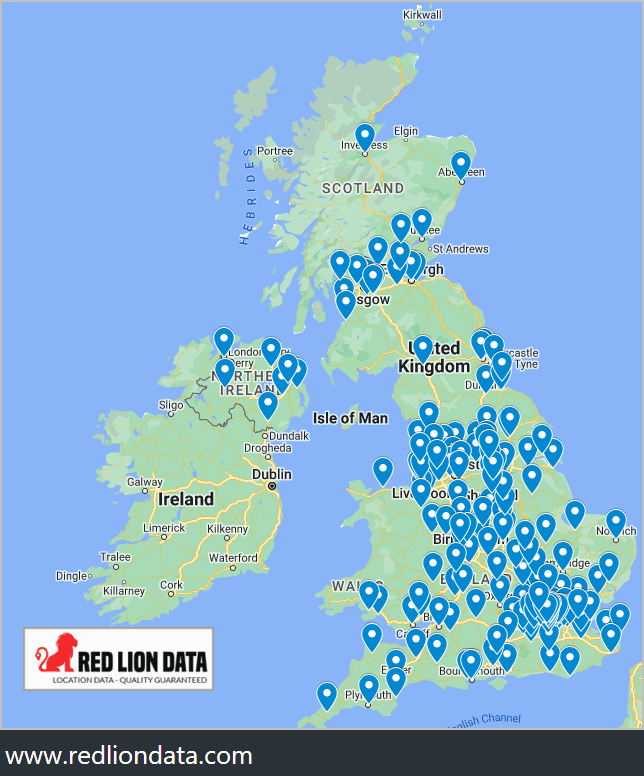Location Primark

The Rise of Primark: A Global Retail Phenomenon
In the fast-paced world of fashion retail, few brands have managed to capture the attention of consumers quite like Primark. Known for its affordable prices, trendy designs, and expansive store layouts, Primark has become a household name in the UK and beyond. But what makes this retailer stand out in a crowded market? This article delves into the history, strategy, and global impact of Primark, exploring how it has become a dominant force in the fashion industry.
A Humble Beginning: From Penneys to Primark
Primark’s story begins in Dublin, Ireland, in 1969, when it was founded as Penneys by Arthur Ryan. The name “Penneys” was inspired by the American retailer J.C. Penney, though there was no affiliation between the two. Ryan’s vision was simple: to offer high-quality clothing at prices that were accessible to everyone. The first store, located on Mary Street in Dublin, quickly gained popularity for its affordable yet stylish offerings.
In the 1970s, Penneys expanded across Ireland, establishing itself as a go-to destination for budget-conscious shoppers. It wasn’t until the 1990s that the brand ventured into the UK market, adopting the name “Primark” to avoid confusion with J.C. Penney. This marked the beginning of Primark’s rapid growth and transformation into a global retail giant.
The Primark Model: How It Works
Primark’s business model is built on a few core principles: low prices, high volume, and a fast-fashion approach. Unlike many retailers, Primark does not sell its products online, relying instead on its vast network of physical stores to drive sales. This decision, while unconventional in the digital age, has proven to be a strategic advantage.
Primark’s supply chain is another critical component of its success. The company works closely with suppliers to negotiate the best prices, often ordering in large quantities to secure discounts. This high-volume approach enables Primark to keep costs down while still offering a wide range of products.
Global Expansion: Primark’s Footprint
Since entering the UK market, Primark has expanded aggressively, opening stores across Europe and North America. As of 2023, the retailer operates over 400 stores in 14 countries, including Spain, France, Germany, and the United States. Its entry into the U.S. market in 2015 was a significant milestone, with Primark now boasting over 30 stores across the country.
| Region | Number of Stores |
|---|---|
| UK | 191 |
| Europe (excl. UK) | 180 |
| USA | 31 |

Primark’s global expansion has been fueled by its ability to adapt to local markets while staying true to its core values. For example, stores in warmer climates like Spain offer a larger selection of summer clothing, while U.S. locations cater to American sizing preferences.
Sustainability: A Growing Focus
As the fashion industry faces increasing scrutiny over its environmental impact, Primark has taken steps to address sustainability concerns. In 2019, the company launched its Sustainable Cotton Programme, aiming to source 100% of its cotton sustainably by 2024. Primark has also committed to reducing its carbon footprint and eliminating single-use plastics from its stores.
“We believe that sustainability should not come at a higher cost to our customers,” said a Primark spokesperson. “Our goal is to make sustainable fashion affordable for everyone.”
While these initiatives are a step in the right direction, critics argue that Primark’s fast-fashion model inherently promotes overconsumption. The retailer continues to face challenges in balancing affordability with environmental responsibility.
The Future of Primark: Trends and Challenges
Looking ahead, Primark is poised to continue its growth trajectory, with plans to expand further into the U.S. and European markets. However, the retailer must navigate several challenges, including rising costs, changing consumer preferences, and increasing competition from online retailers.
FAQ Section
Does Primark have an online store?
+No, Primark does not currently offer an online shopping platform. The retailer focuses exclusively on its physical stores to maintain low prices and encourage in-person shopping.
Is Primark’s clothing ethically sourced?
+Primark has made strides in ethical sourcing, including its Sustainable Cotton Programme and commitments to fair labor practices. However, the brand continues to face criticism for its fast-fashion model.
How does Primark keep its prices so low?
+Primark achieves low prices through high-volume ordering, efficient supply chain management, and a focus on physical stores, which eliminates e-commerce-related costs.
Will Primark expand to more countries in the future?
+Yes, Primark has plans to continue its global expansion, particularly in the U.S. and European markets, while also exploring new regions.
Conclusion: Primark’s Enduring Appeal
Primark’s journey from a small Irish retailer to a global fashion powerhouse is a testament to its unique business model and unwavering commitment to affordability. While the brand faces challenges in an evolving retail landscape, its ability to adapt and innovate suggests a bright future ahead. Whether you’re a loyal customer or a curious observer, Primark’s story is one of resilience, strategy, and the enduring appeal of accessible fashion.
Final Thought: In a world where trends come and go, Primark’s focus on value and accessibility has proven to be a timeless formula for success.